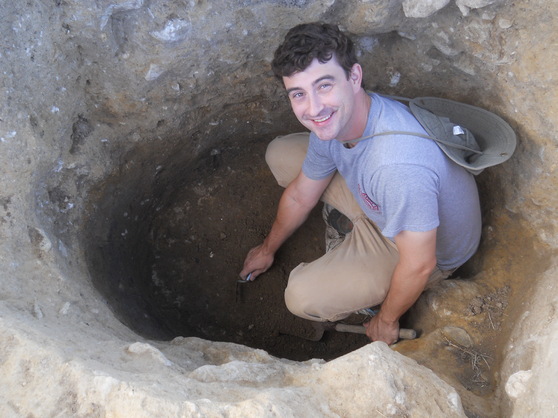
John Gorczyk, PhD Candidate
John is a fifth-year PhD candidate whose interests lie in the prehistory of southeastern Europe. He has worked on sites in present-day Bulgaria that range in time from the Early Neolithic (6200-5500 BC) to the late Roman period, although he focuses on earlier prehistory and the spread and establishment of farming communities in southeastern Europe.
As a zooarchaeologist, he studies the varied roles that animals play in prehistoric societies. This includes herding and hunting, animal mobility, animals as wealth, the symbolic value of animals and much more. His dissertation research combines zooarchaeology with analyses of stable isotopes and ancient animal dung in order to investigate the relationship between the location of animal communities in the physical landscape and their place in Neolithic social systems. Currently he works on the faunal material from the Neolithic site of Slatina in Bulgaria's capital Sofia, but he is also involved in both a research and supervisory capacity in the project "Consuming and producing the transition: incorporating animal resources at the turn from the Late Bronze Age to Early Iron Age in Southwestern Bulgaria." The project is run jointly by New Bulgarian University and the University of Heidelberg. Among the project’s many research goals is a better understanding of how systems of animal management shifted along with major social changes at the end of the 13th c. BC.
John received his BA in Anthropology and History from the University of Pittsburgh in 2007, and his MA in Anthropology from Cornell University in 2013. He is originally from Scranton, PA.
